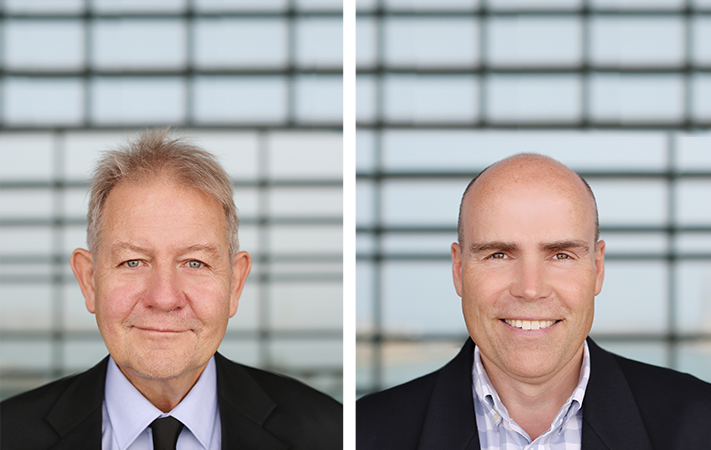KAUST professors named Fellows of The Combustion Institute

KAUST Professors Robert Dibble (left) and William Roberts (right) were recently inducted as Fellows of The Combustion Institute for their outstanding contributions to combustion research and applications. File photos.
-By Caitlin Clark, KAUST News
In February, KAUST Professors William Roberts and Robert Dibble were inducted as Fellows of The Combustion Institute (CI).
The CI was established in 1954, and since then, it has worked to facilitate the dissemination of research in combustion science and technology around the world. In its quest to advance society through the combustion field, the CI holds scientific conferences, lecture events, summer schools and stipend programs for researchers. Members work to ensure combustion research is recognized as a "field of eminent societal importance that cuts across many scientific and engineering disciplines," the institute noted.
According to the CI, Fellows are "[m]embers of the international combustion community recognized by their peers as distinguished for outstanding contributions to combustion...in research or in applications." Fellows also actively participate in the CI by attending CI events and Section meetings and publishing in CI-affiliated journals. Becoming a Fellow "supports CI members in their advancement to leadership positions in their own institutions and in the broader society," CI stated.
%20(1).jpg)
Facilities of the University's Clean Combustion Research Center (CCRC) are pictured here. In the CCRC, Professors William Roberts and Robert Dibble work with students and researchers to carry out groundbreaking studies in combustion science. Photo by Anastasia Khrenova.
A 'most fulfilling honor'
Roberts, who is also the director of the University's Clean Combustion Research Center, was inducted "for groundbreaking advances in understanding the intricacies of laminar flames, turbulent combustion and soot formation processes at elevated pressures," according to the CI.
"Practical combustion devices, e.g., internal combustion engines and jet engines, operate at high pressures to increase thermodynamic efficiency," explained Roberts. "The interactions between the chemistry and the fluid mechanics become more complex as the pressure increases. Understanding this interaction—and how it governs the behavior of pollutant formation in these high pressure flames—that has motivated me through much of my career."
"Recognition by one's peers is the highest and most fulfilling honor," he continued. "I am thrilled that my colleagues appreciate my contributions to the field. I believe [becoming a Fellow] will help bring the best students to KAUST. Students—and rightly so—want to work with recognized experts. For my former and current students, my becoming a Fellow validates their work, because after all, the students are the ones that did/do all the hard work."
.jpg)
A scientist works in the University's Clean Combustion Research Center. Photo by Anastasia Khrenova.
Where ideas come together
Dibble was inducted "for the exceptional advancement of turbulent flames, laser diagnostics and combustion in reciprocating engines," the CI stated.
"Much of the award is for using the newly invented laser—instead of metallic suction probes—to learn more about the inner workings of a turbulent jet of fuel into air," he noted.
"Combustion is a place where many ideas come together," Dibble continued. "I am very happy to become a Fellow, as my career has spanned many things and many disciplines. I'm not a Fellow in another area, simply because I have not been a steady contributor to those areas. I'm gratified to be a Fellow of such a diverse group. The impact [of my Fellowship] will largely be to our students, who will be advised to make steady progress in the field of combustion."

